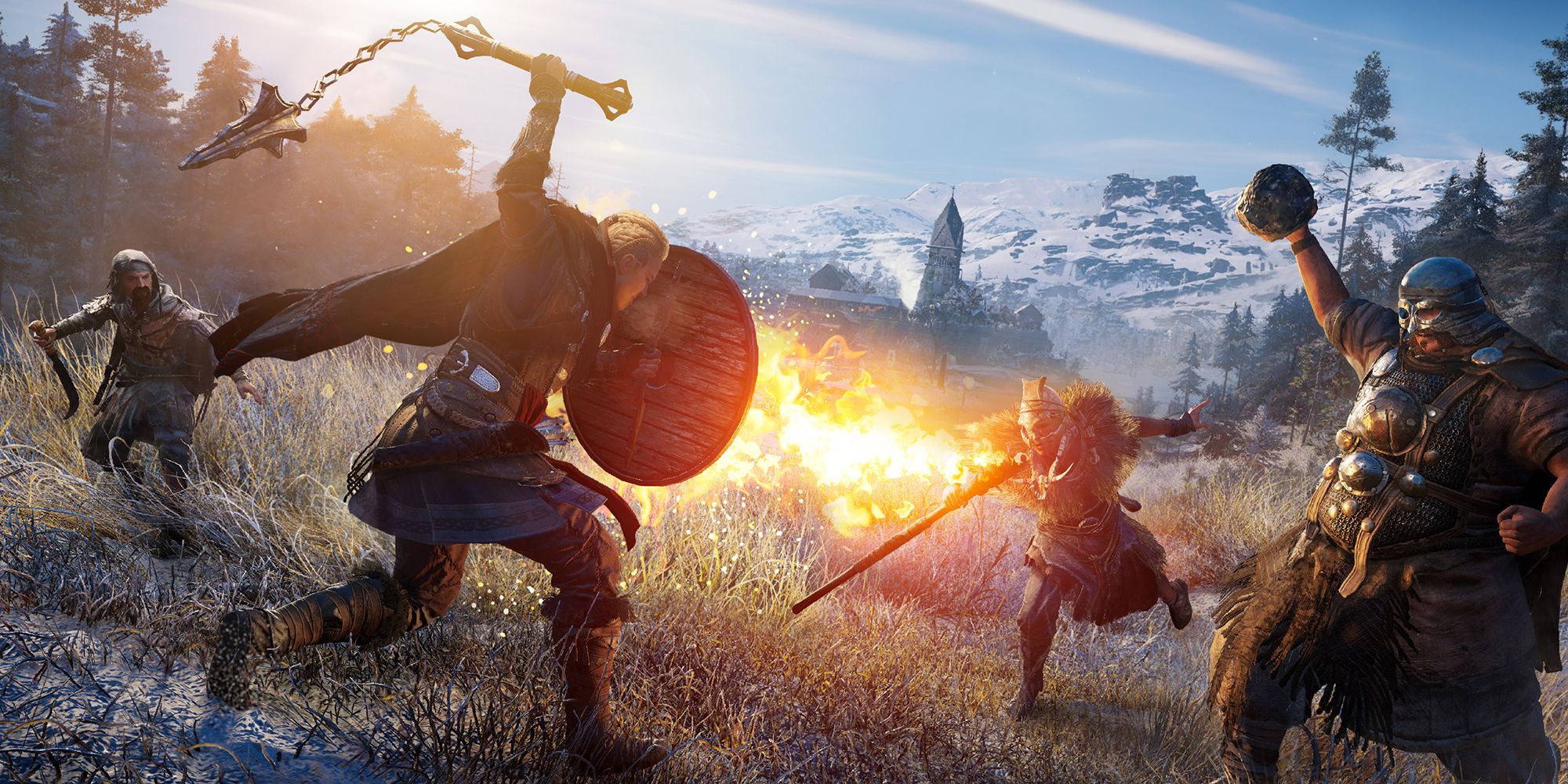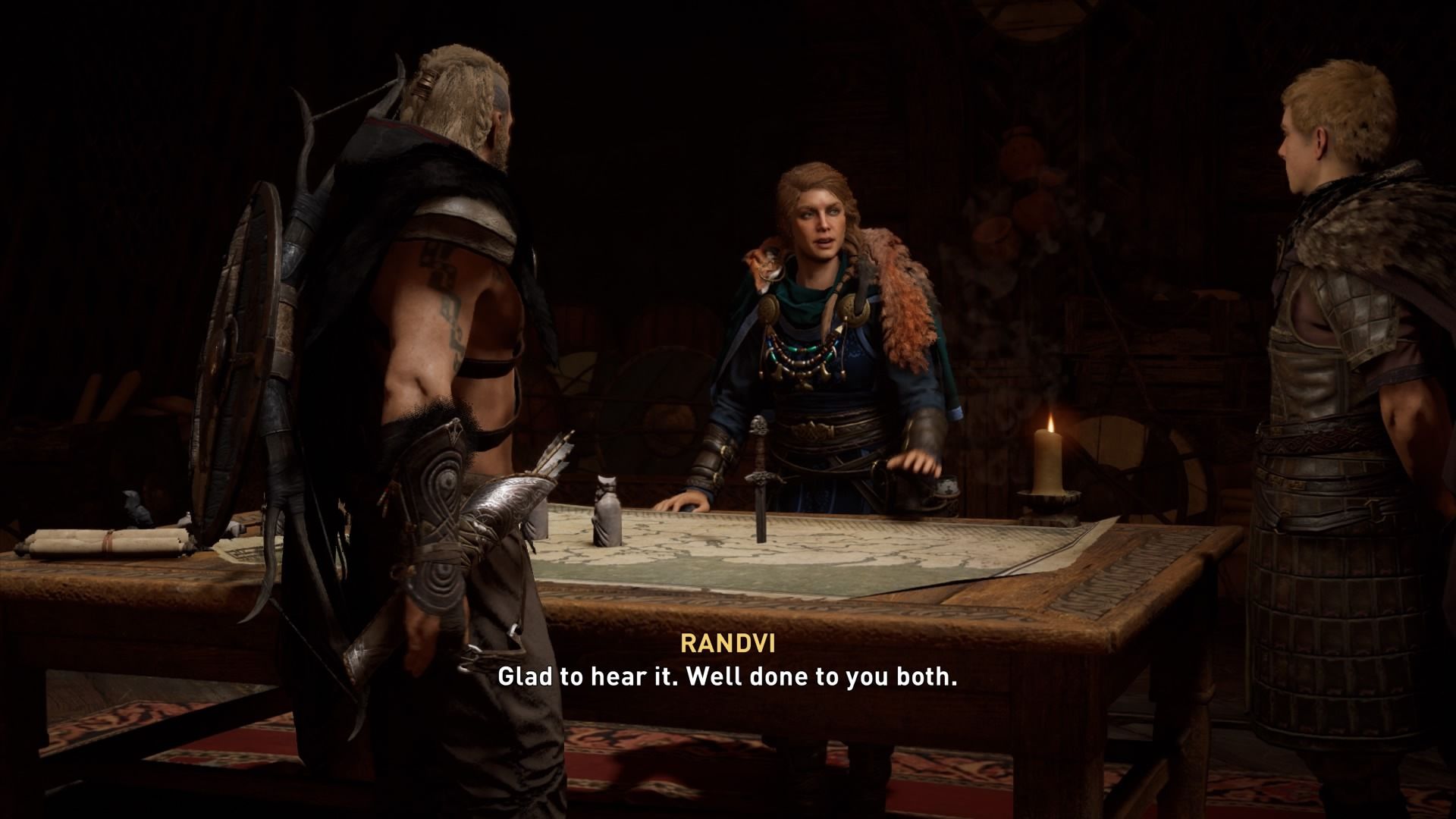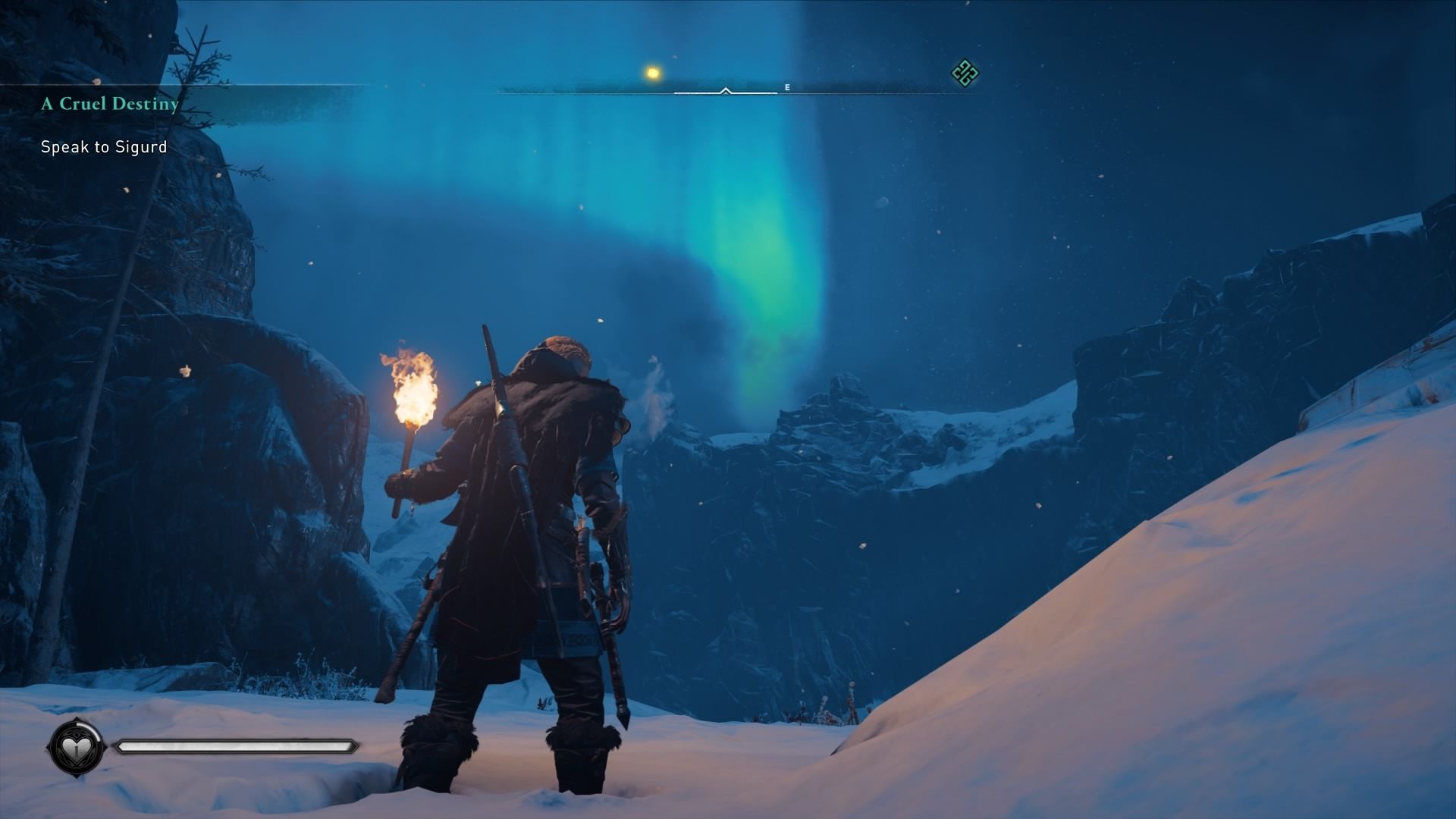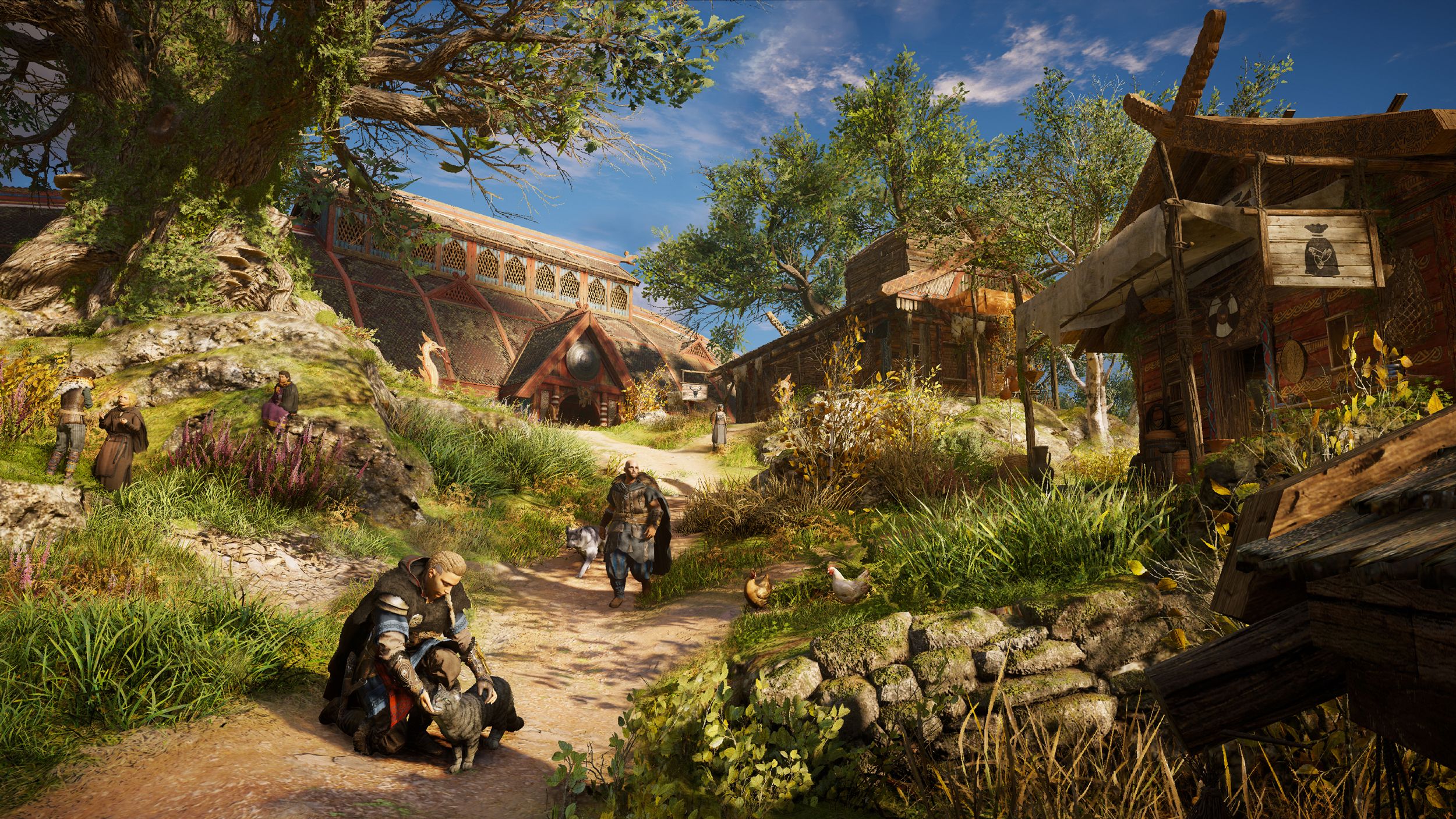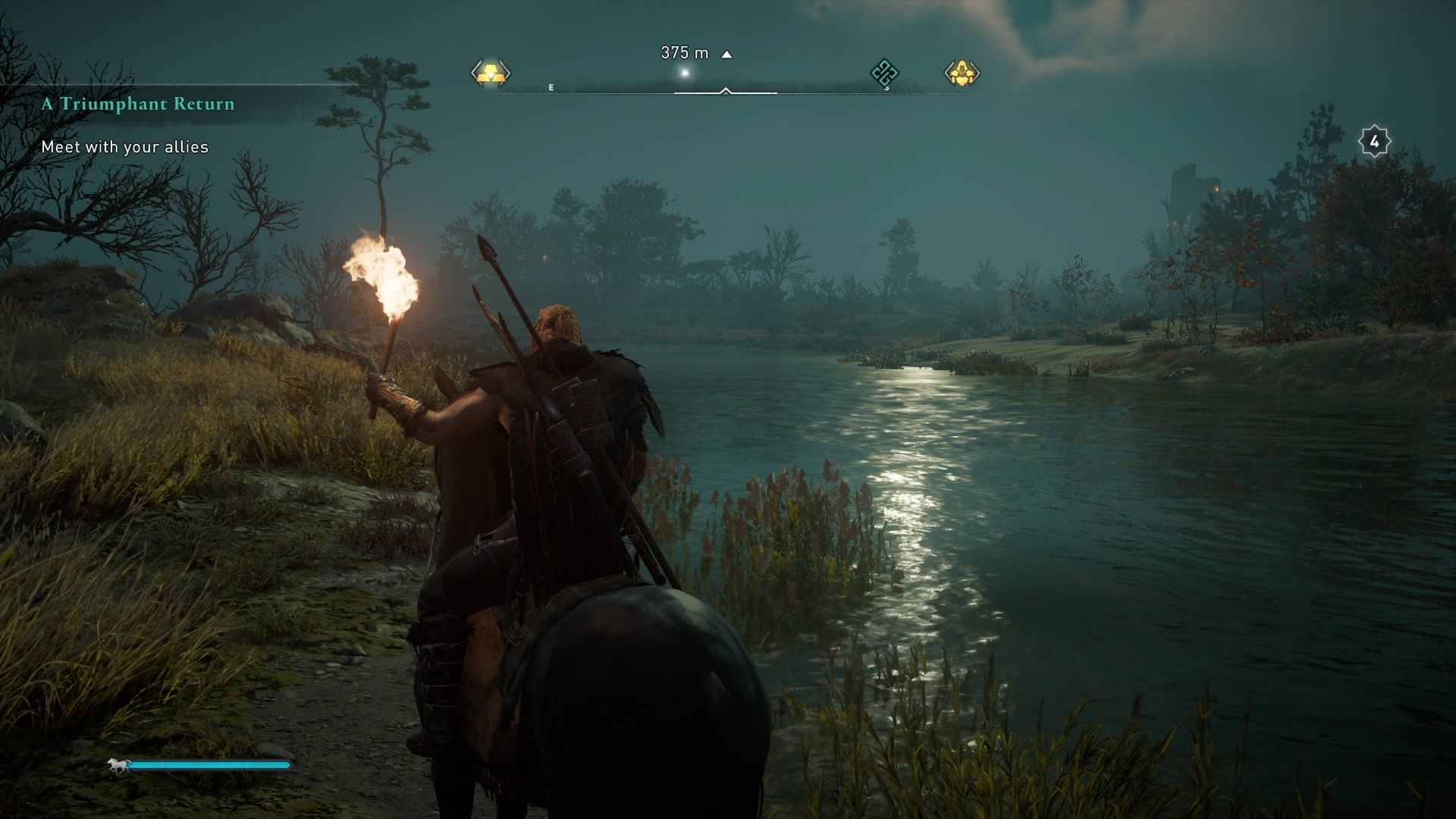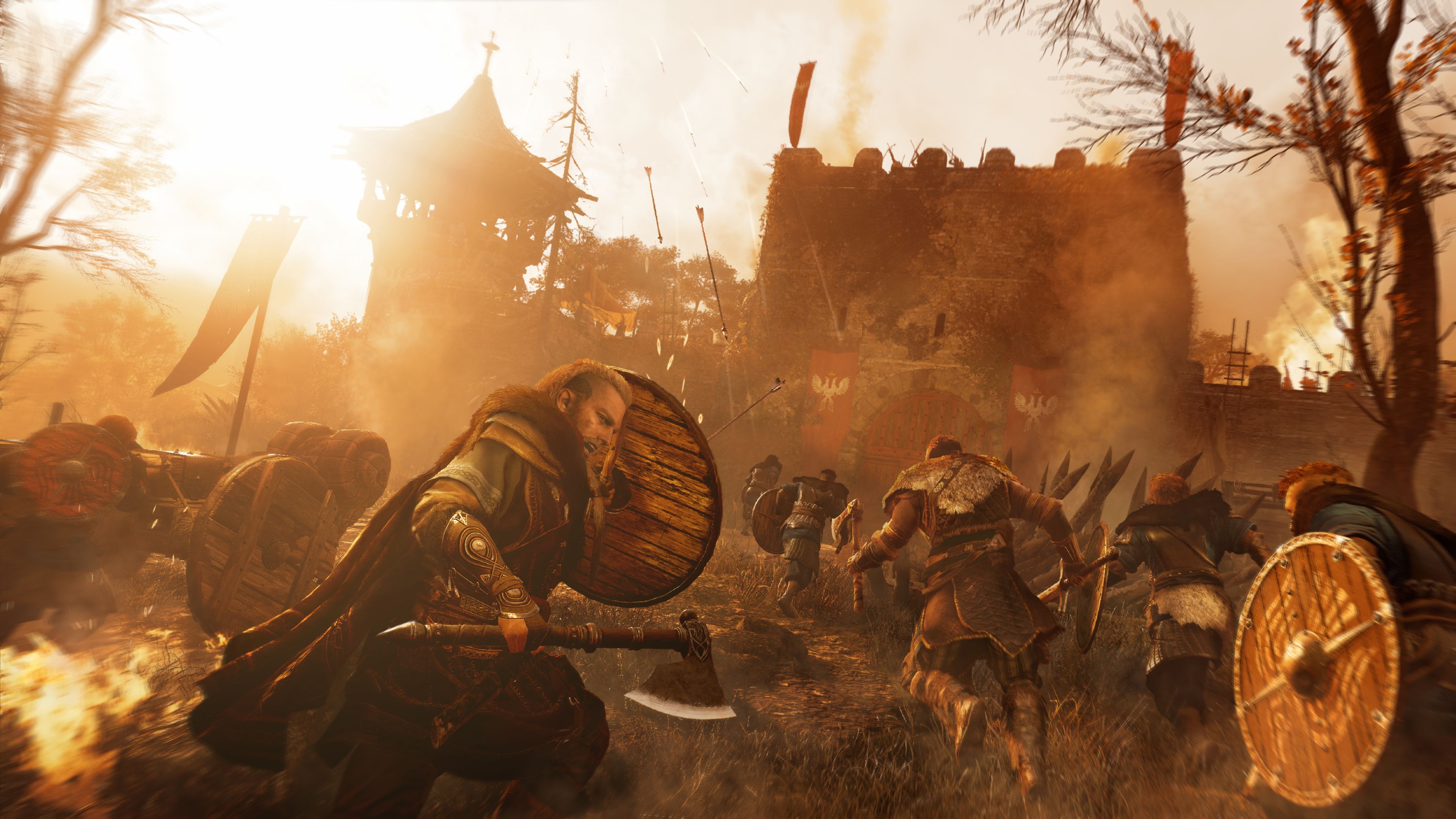Assassin's Creed Valhalla sees the franchise standing at a crossroads. 2017’s Assassin’s Creed Origins was a major overhaul to the series, and 2018's Assassin's Creed Odyssey took things even further into the realm of an action RPG. As such, Ubisoft faced a decision: push away from its roots further or return to the fold.
Set during the Dark Ages, Assassin’s Creed Valhalla follows the Viking Eivor as they travel to England seeking glory and a place to call home. Together with the Raven Clan, Eivor becomes embroiled in the politics of England, and uncovers mysteries that tie into the wider narrative of Assassin's Creed. They also kill a lot of people.
With Assassin's Creed Valhalla, Ubisoft reels in the series back to its source. As well as some obvious returning features from the classics, the game features more ambient stealth sections where the player can blend into crowds, substantially more haystacks than the last two games, and story beats that pay more attention to the lore of the franchise. Player movement and action also feel more restrained, and less like the playground of Odyssey.
Whether this is a good thing is a matter of what the player thinks of Assassin's Creed as a whole. For some, the previous two entries had been a breath of fresh air and a much-needed change of pace, whereas for others it took away from what made Assassin's Creed special; if fans are in the latter group, then Valhalla will appeal as a combination of the two worlds. However, it certainly feels a lot more restrictive than the joyous free-flowing movement of Odyssey.
Those expecting a return of a heavy stealth influence may be surprised. Although Valhalla can be played with stealth in mind, the game puts a lot of emphasis on direct combat. This is seen in both its combat mechanics, which have been upgraded from the last few games, and its individual gameplay elements like the ability to call in your Viking crew to join your assaults near water.
Thankfully the combat is a lot of fun. Fighting with enemies is meatier and more tactile than Odyssey, with real weight behind strikes and an immediately noticeable difference between weapon types. There's versatility, too, with the player able to choose from a variety of builds such as dual-wielding small arms or two-handed weapons like large axes and spears.
Much like many other action-centric RPGs developed since From Software came to dominate the genre's imagination, Valhalla has been influenced by Dark Souls. This is not in terms of difficulty, as Valhalla is as challenging as Odyssey and Origins, but with a limited stamina bar that can punish the player if they're not careful with their attacks, and the introduction of rations as health potions: effectively Estus flasks, but easier to refill.
Being more aggressive is an essential part of the game, as seen with the raiding mechanic. Similar to piracy in Assassin's Creed IV: Black Flag, the player will need to raid monasteries in order to grow their settlement. It's a fun addition, although sometimes ally AI leaves a lot to be desired, setting fire to explosive pots while other raiders are around or failing to follow Eivor into the fray.
The settlement itself is a parallel to the camp in Red Dead Redemption 2, and Eivor can use this to better know their clan. Over time it grows, and missions can be picked up and conversations can be had with its inhabitants, but it always feels quite stilted and never as organic as those fireside chats and singalongs in Red Dead Redemption 2. It's a shame, given how entertaining such a location could be in a Viking setting.
Valhalla's Mysteries are a much better example of something successfully influenced by Red Dead Redemption 2. Acting as a kindred piece to Rockstar's Stranger missions, they give the player side quests and puzzles to solve, and are more carefully thought out than the equivalent repetitive fetch quests of Odyssey. Between these moments and the characters of the player's settlement, it makes Valhalla a more atmospheric experience than Origins or Odyssey before it.
Eivor is also quite a strong lead character, in spite of their basic back story. The player can choose between genders or allow the game to swap between male and female at random based on 'Animus signal strength', a fun framing gimmick that can break immersion at times. Eivor's male and female actors do good jobs, with the female feeling more aggressive and the male more whimsical, although overall Eivor isn't quite as charismatic as Cassandra from Odyssey.
Valhalla's narrative covers familiar themes of honor versus compromise, and glory versus pragmatism, which fit well with its Viking setting. Its story of Eivor and Sigurd staking a claim to England eventually becomes entwined by the usual Templar fare (dubbed the Order of the Ancients a la Origins), but thankfully the tracking down of this order is once again primarily kept within a separate mechanic as seen with the Cult of Kosmos in Odyssey.
That said, Valhalla does sometimes feel as though it is struggling between two worlds. Its grounded story in England feels more authentic than the swords and sandals epic of Odyssey at the expense of a darker tone. Eventually fantasy elements creep in alongside the wider Assassin's Creed lore, including sections that throw the player heavily into Norse mythology, but the two worlds never intertwine successfully, in part because the Asgardian sections are a chore to play and take the player out of a more engaging reality. It's something consistent in Valhalla: neither its story nor gameplay feel truly at ease with the scope it's been given.
In part that's because so much is crammed in. There are mini games like Flyting (essentially Viking rap battles), drinking contests, and dice games, while puzzles around Animus Anomalies and standing stones also appear. Valhalla has a Jomsviking mechanic, where the player creates a lieutenant who can support other players, a spin off the Pawn system used in Dragon's Dogma that may not see much use by day-to-day players.
The need to make this both 'Assassin's Creed game' and 'Ubisoft open world game' also holds back Valhalla from reaching its potential. Some of these issues are minor - why, exactly, are there so many poisonous snakes to be found in pots in England? - but others are very frustrating, such as how the player can only access some Abilities by exploring the map, rather than through levelling up. Helix credits also make a return for obligatory monetization of a single-player RPG, although the depth of its microtransactions isn't available to see in the review build of the game.
Aside from the mysterious snake population, thankfully Valhalla's England is well-realized, with more variation in landscape than England should really allow for. From grassy plains through to murky swamps and towns full of Roman ruins, Valhalla is gorgeous to behold at times. It may lack the variety of Odyssey's Greece, but Valhalla more than makes up for it in quality.
This comes at a price, as the review build of Valhalla on a standard PS4 had a fair few glitches. Some of these feel quaint, like the occasional floating character, jumbled dialogue, or poor AI, but others are almost Bethesda-esque glitches, such as clipping through the world into an endless ocean, or having to restart quests because of scheduled events or conversations not triggering. Valhalla feels unpolished, and although Ubisoft has confirmed there will be a launch day patch it remains to be seen if all issues will be resolved.
Given the disrupted development of the game, this might be expected. Creative Director Ashraf Ismail stood down and was eventually fired over misconduct, as part of the wave of harassment and abuse accusations at Ubisoft which have been yet to be appropriately addressed by the company. Even with that context, and the potential challenges of COVID-19, it's worth noting the above issues.
Assassin's Creed Valhalla is a game of binaries and an ambitious, striking effort, even if it doesn't always have the steadiest of feet. It's a good game, and even great at times, but it never quite manages to work out how to settle its past with its future.
Assassin's Creed Valhalla releases 10 November 2020 for PC, PS4, Xbox One, and Xbox Series S/X, and 12 November 2020 for PS5. Screen Rant was provided with a PS4 download code for the purposes of this review.

